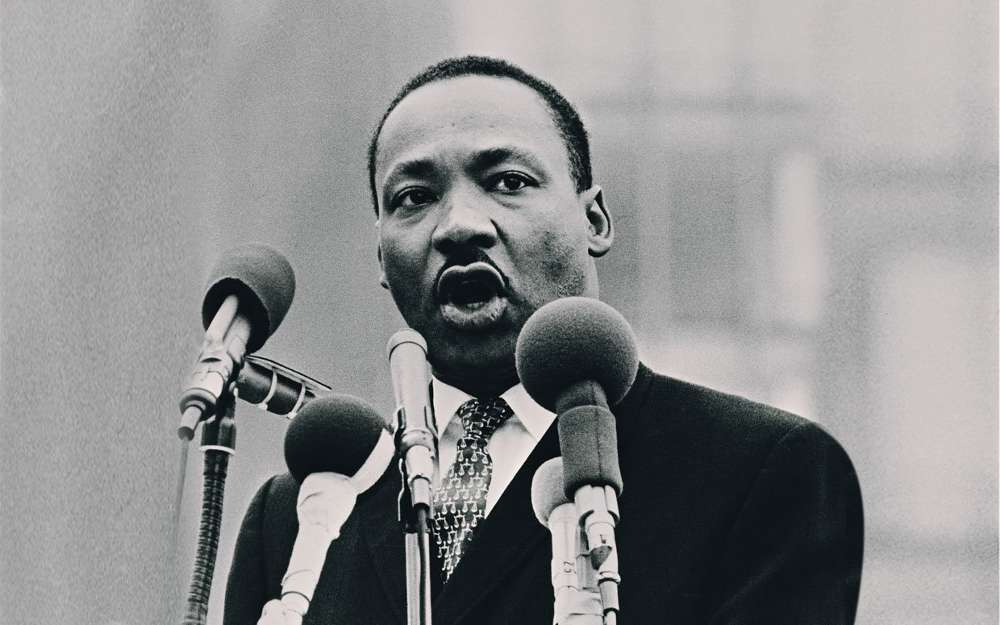“A rejection of absolutism, in all its forms, may sometimes slip into moral relativism or even nihilism, an erosion of values that hold society together, but for most of our history it has encouraged the very process of information gathering, analysis, argument, and persuasion which allows us to make better, if not perfect, choices – not only about the means to our ends, but also the ends themselves.” Barrack Obama, The Audacity of Hope: Thoughts on Reclaiming the American Dream
“Every human position has a problem with it. Believed in too much, it slides into error. It’s not that no position is correct; it’s that no position is correct for long. We’re perpetually slipping out of absolute virtue and failing to notice, blinded by our desire to settle in – to finally stop fretting about things and relax forever; to find an agenda and stick with it.” George Saunders, A Swim in a Pond in the Rain.”
“There are no eternal facts, as there are no absolute truths.” Friedrich Nietzsche
I recently read a long article in the New York Times about conservative extremism. My short summary was that theological absolutism driven by convoluted conspiracy craziness results in extreme religious righteousness and reactionary rage. It occurred to me, paradoxically, that certainty seems to be increasing in direct proportion to complexity, particularly as it relates to the Israel-Hamas War. And thus, the reason for this post.
As is my custom, I went to Brainy Quotes and Good Reads to find quotes that best captured this phenomenon. No surprise: some of my favorite authors had the most profound things to say about absolutism. Oh Barack, where are you now when we so desperately need you.
I then did a search of the literature to see if there were any scientific articles concerning the relationship between complexity and certainty. I found that “degree of certainty refers to the subjective belief, prior to feedback, that a decision (or position) is correct and that a reliable estimate of certainty is essential for prediction, learning from mistakes, and planning subsequent actions when outcomes are not immediate.” The essential conclusion from the research is that certainty depends on the time taken to form a decision and the amount of evidence supporting the decision, i.e. the longer you ponder a decision and the deeper the evidence for your decision, the more likely you will be certain about the accuracy of your decision.
While the research makes sense, it doesn’t exactly square with my observations about what seems to be emerging in society at large and with the Israel-Hamas War in particular. It seems to me that while complexity continues to increase, evidence is playing a diminishing role in not only the certainty we have about our decisions, but also in our beliefs, solutions, and “truth.” It may be that cultural conditioning over time leads people to lock down on a particular position or political belief, but that certainty does not seem to be shaken by evidence or conflicting “truths.”
So, for what it’s worth (I’m no longer sure if anyone really cares about “my truth”), here’s where I landed on absolutism after pondering different Brainiac quotes, research results, and different points of view.
- It’s critical that we base our decisions on science and history. Science is essentially a process for testing hypotheses. Scientific decisions are based on the level of confidence given all the data. Science does not claim to have any fixed truths – only probability-tested possibilities given rigorous research and established facts. History helps us to understand the deep roots of any particular problem and to clarify the current context. It seems to me that science and history are good places to start when we approach any complex situation. Thus, understanding the history of the Jewish people over the past few millennia is particularly critical now given how rapidly narratives shift due to social media and disinformation. The facts reveal persistent persecution of Jews; the narrative for some, however, suggests that the Jews are the perennial perpetrators.
- We always need to be open to the possibility of being wrong. Whenever we are absolutely convinced about our righteousness, we are more vulnerable to missing out on alternative possibilities or to executing “solutions” today that may become the problems of tomorrow. Think the atomic bomb and AI. Before taking to the streets to protest or condoning violence, it’s probably a good idea to get all the facts straight. It seems to me that, in this highly charged moment, we are quickly jumping on opinions instead of staying grounded in facts. While facts may not endure over time, opinions are much more likely to be fleeting and wrong.
- We are in an existential crisis with polarized beliefs between liberal democracy and right wing dictatorships – a divide based largely on the perceptions of the right about the dangers of leftist-elite, progressive tyranny and the perceptions of the left about the dangers of right-wing repressive tyranny, e.g. Christian Nationalism. While I am clearly not in the camp of Christian Nationalists (think MAGA Mike Johnson), I’m also appalled by Ivy League “intellectuals” who have gone all in on protesting Palestinian oppression while refusing to acknowledge the October 7 Hamas holocaust, or even worse, justifying it as legitimate resistance to Israeli Colonialism. Somehow, we need to find common ground to help us bridge the divides. Absolutism does not help.
- We need to be wary of the appeal of being doubt free. While I have strong beliefs that Hamas capabilities need to be destroyed, Netanyahu has to be defeated, an Arab-Israeli coalition needs to be formed to rebuild Gaza, the Palestinian Authority (PA) needs to be strengthened, and a two-state solution is the only sustainable answer, I am still full of doubt that any of those outcomes can happen without enormous costs. My doubts are based on real, if limited, experience. Several years ago, I was fortunate enough to tour Israel with three guides – one Jew, one Muslim and one Christian. Each presented a compelling case for his side of the story. We were able, through the auspices of National Geographic, to visit a Palestinian refugee camp in the West Bank, meet with PA leaders in Ramallah, talk with Palestinians living in Israel, listen to leaders of a major settlement town, visit an Jewish Orthodox community, and hear the points of view of Israeli leaders. I came away from the experience full of doubts about any “easy solutions” AND quite convinced that Palestinian oppression is real. Having seen all that turmoil and studied the history, I’m still sticking with my beliefs outlined above – but I’m well aware there are multiple truths here, and I’m convinced that it’s more important to hold onto my doubts than to cling to my beliefs. Having said that, I’m still quite certain there is a lack of equivalency among the “truths” that people hold.
- Absolutism on all sides creates an impenetrable shield that precludes constructive dialogue. In this age of competing and conflicting truths in which both sides are absolutely certain about their particular points of view, it is extremely difficult to break through and to create sustainable solutions based on collaboration and interdependence. THIS is the ultimate challenge.
So, how do we get through these truly horrifying times and deal with the absolutism that exists on both sides? I really don’t know. Obama states his rejection of absolutism much more eloquently than I could ever hope to. First, he acknowledges that the rejection of absolutism runs the risk of slipping into moral relativism, nihilism, and erosion of binding values. Then he balances that risk with the benefits of information gathering, analysis, argument, and persuasion. Finally, he concludes that the vision is not perfection, but better choices about our means and better outcomes in the end. An audacious vision of hope, but a path to reclaiming the American dream. Wow!
George Saunders acknowledges that every human position has its own set of problems, but he cautions us that the more convinced we are of our beliefs, the more vulnerable we are to error. As Nietzsche succinctly suggests, “there are no eternal facts and there are no absolute truths.” Saunders suggests that when we are blinded by our desire and fail to notice it, we tend to relax and stop fretting – to settle into our agenda and stick with it. In my mind, at this point in history, it might be a good idea to fret more and fiddle less.
Again, for what it’s worth, what works for me is to focus on what I can do: Energize, Notice, Unify, Harmonize, and Heal (ENUFF).
- To Energize our whole being and to bring that energy to each moment that counts.
- To Notice when our desires and beliefs may be blinding us to better choices.
- To Unify our physical, emotional, intellectual and spiritual dimensions in order to avoid one dominating the other, e.g. thinking a physical, military response will be enough. It didn’t work in Vietnam, Iraq, or Afghanistan and it won’t work, in and of itself, in the wars we are fighting now. Spiritual wholeness, emotional well-being and intellectual coherence are as important as any physical goals we may have.
- To Harmonize within ourselves and with others. To find the music that brings us together. To find common ground and to work together to build on it.
- To Heal the traumas we have within and the tensions we may have between the people we care about. If we attend fully enough to our personal and local issues, we may impact the global zeitgeist.
For me, that’s ENUFF. I’m hoping that leaders in our country and on the world stage have seen ENUFF violence and needless suffering. I’m hoping that we can all free ourselves from the prison of absolutism and develop ENUFF doubt to question the certainty of any “solution” in this complex world. Finally, I’m hoping all of us might join with Bob Dylan and sing together the verse, “How many deaths will it take till we know, that too many people have died?” ENUFF!! May it be so.




May it be so indeed! Thank you Ricky